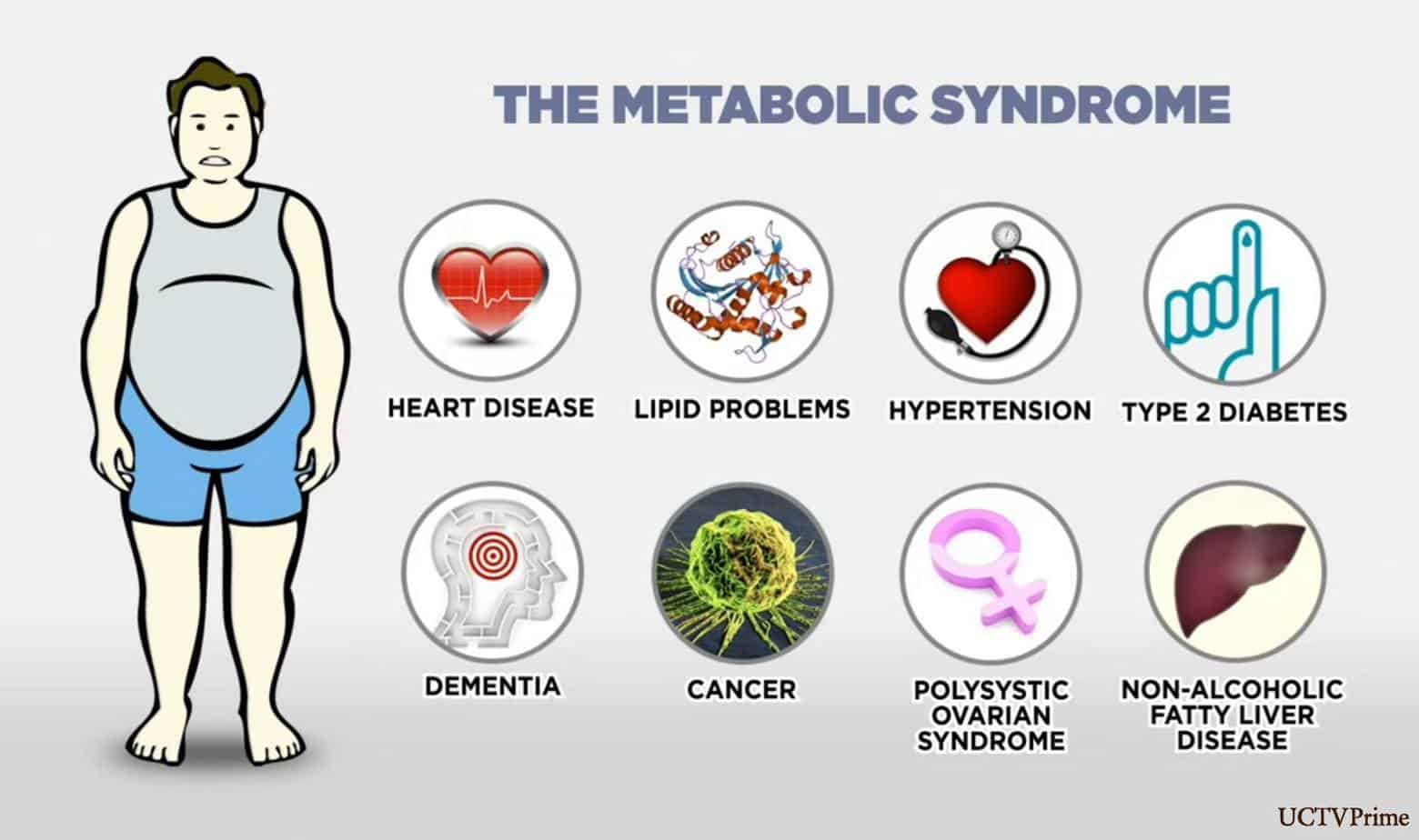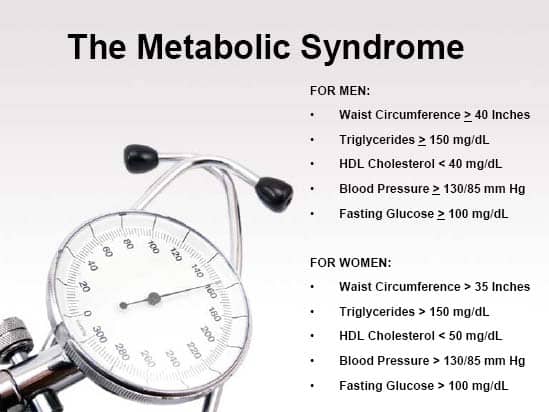Metabolic Syndrome Affects 30% of the U.S. Population — How About You?
Metabolic Syndrome affects 30% of the U.S. population. If you have 3 of 5 biomarkers, you’ve got the “syndrome”. How many of its biomarkers do you have?
A BUDDY of mine returned from a hectic business trip. He was frazzled. I met with him the day he returned home for a spot of tea.
“I got a scare”, he said.
“What happened?”
“Rushing to the airport to catch the plane, I got some sorta heart arrhythmia. I sat in a chair as people were boarding, and I wondered if I’d die once on that plane.”
“Well, you obviously boarded the plane, and it appears that you’re not dead”, I said.
“Yeah, and once we landed, I went straight to the ER… got a stress test on the treadmill, full diagnostics, everything.”
“And you’re OK?”
“Yeah, dodged that bullet.”
Dodged that bullet indeed, because my friend is about 40 pounds overweight, much of it loaded in his gut, and he spends most of his days sitting, which all by itself can cause some damage.
I was worried that he had Metabolic Syndrome, and asked him if the doctors checked the various biomarkers that signal this unhappy condition.
I’ve written about this before from the perspective of how gut bacteria can influence the conditions that promote Metabolic Syndrome. This picture will set the stage:
Metabolic Syndrome is an umbrella name for a collection of health risk factors — high blood pressure, high blood sugar, high triglycerides, low HDL cholesterol, high LDL cholesterol, and excess belly fat.
If you have only two of these markers out of balance you double your risk of early death. With four markers you increase risk of death by more than threefold! (1)
Part of the problem is insulin resistance — your cells start losing their ability to use insulin and process blood sugar correctly so blood sugar creeps up, along with body fat, blood pressure, and cholesterol. Over time, insulin resistance turns into adult-onset diabetes and heart disease.
If you have three of the five of the Metabolic Syndrome affects, you probably have the condition. I figured that my friend had all five. But no, he had only two: large waist and high blood pressure.
Was I wrong to worry?
A recent report suggests I was not.
It says that a third of US adults have Metabolic Syndrome, based on the most recent National Health and Nutritional Examination Survey, and almost half of those over 60 were affected.
Why is that a problem?
Because Metabolic Syndrome dramatically increases the risk of heart disease, diabetes and fatty liver. Like a lot of unhappy things, all of this becomes more prevalent with age:
- 18.3% of 20- to 39-year-olds,
- 33% of 40- to 59-year-olds, and
- 46.7% of people aged 60 and older had metabolic syndrome. (2)
Get this: 30% of the overall U.S. population is estimated to be affected by metabolic syndrome.
So, if you’re sporting a large gut, eat a lot of sugary foods and/or grain-based carbs, or know you have three or more of the biomarkers listed in the picture above, you should get checked for Metabolic Syndrome.
Your happy, healthy life depends on it.
Nuff said.
P.S. This just in:
Metabolic Syndrome could be more of a risk to people’s health than originally thought, according to new research. A study published in the Journal of Clinical Endocrinology & Metabolism suggests that people with metabolic syndrome are more likely to die from cardiovascular disease than those without the condition. Read more.
Last Updated on July 9, 2020 by Joe Garma




